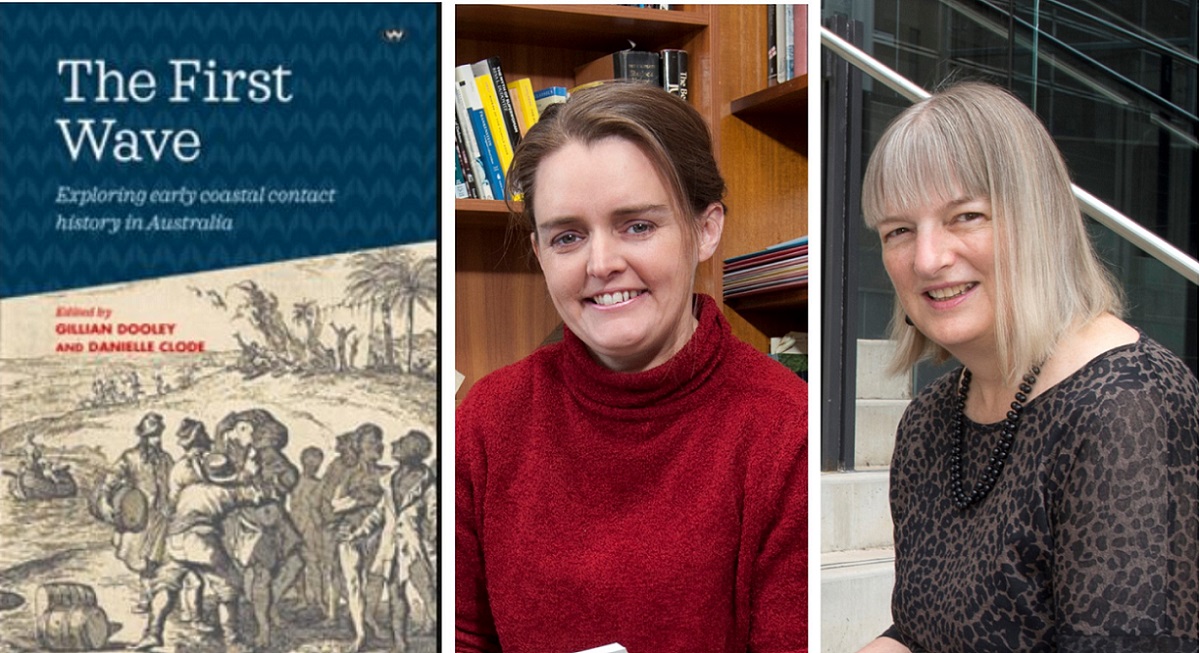
A new book exploring early Australian contact history from European and Indigenous perspectives will be launched on 10 September, at Flinders University in Victoria Square.
The First Wave (Wakefield Press), edited by Dr Gillian Dooley and Dr Danielle Clode, draws together 26 essays, stories and poems from a range of authors including many of Aboriginal heritage.
Contributions from poets, novelists, historians, literary scholars, anthropologists, musicologists, linguists and ecologists explore the dynamics of these early encounters – from Indigenous cosmological perspectives and representations in art and literature, to the role of animals, food and fire in mediating first contact encounters, and Indigenous agency in exploration and shipwrecks.
The rich content includes thought-provoking poetry by Yankunytjatjara Aboriginal poet Ali Cobby Eckermann, fiction by Miles Franklin award-winning Noongar author Kim Scott and an account of the arrival of Christian missionaries in the Torres Strait Islands by Torres Strait political leader George Mye.
“We wanted to include multiple perspectives on multiple encounters, in a variety of genres – concentrating on meetings with explorers – temporary visitors, rather than the settlers or invaders who came later,” says co-editor Dr Gillian Dooley.
The initiative grew from Dr Dooley’s musings while reading an account of Matthew Flinders’ journal of his circumnavigation of Australia. She began to wonder what lay behind the recorded observations of Aboriginal inhabitants.
Matthew Flinders and his crew brought many assumptions about Australia’s original inhabitants based on scant and often incorrect knowledge, such as stereotypes of the ‘noble savage’ and a belief in the superiority of European civilisation.
The book helps to meet the gap in published perspectives of first contact, which rely heavily on European accounts. It provides new insights to better understand what the Europeans were not seeing and did not understand, and what accounts continue to survive in the traditions and cultural memories of Australia’s first peoples.
Drs Dooley and Clode conclude that while it’s useful to understand that explorers like Dampier and Cook were products of their time and perhaps did not intend the harm they were causing, “they should not be canonised, nor should their version of events be privileged”.
The implications of re-examining such historical records resonate in countries around the world that have also been colonised. “Anyone, anywhere who’s working in the postcolonial area is interested in the issues dealt with in the book, so we shouldn’t think of it as just an Australian history book,” says Dr Dooley.
Flinders alumni in London were treated to a preview of the book at a soft launch event in June this year.
Launch event details
Where: Flinders at Victoria Square
When: 6 – 8:00pm, 10 September 2019
Register online by 5 September 2019

